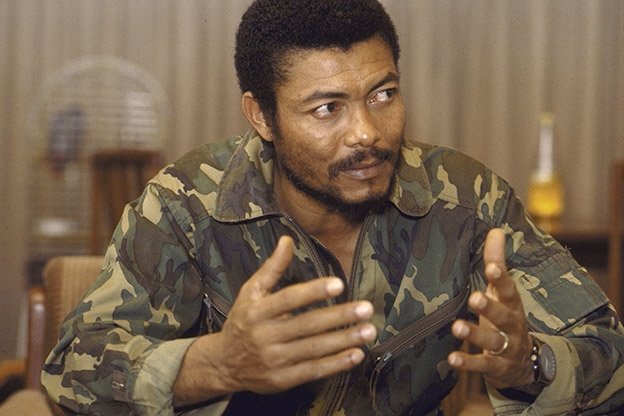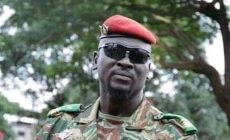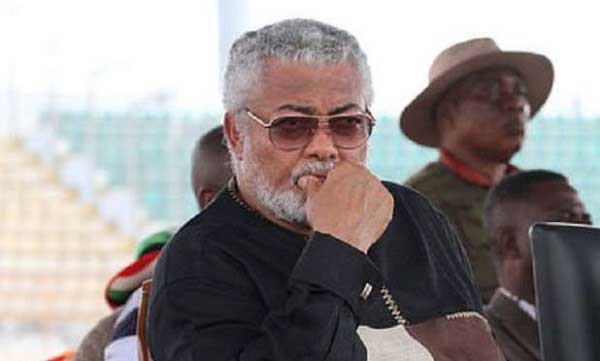“I wish we continued the programme of June 4″ – J.J. Rawlings
- Posted on
- Comment
 Former President Jerry John Rawlings has observed that the nation is in a state of anger as a result of corrupt practices engulfing the country.
Former President Jerry John Rawlings has observed that the nation is in a state of anger as a result of corrupt practices engulfing the country.
That, he noted, had come about because of the curtailment of the principles and ideals of the June 4, 1979 Uprising that instilled integrity, probity and accountability in the body politic of the country by successive governments.
“I wish we continued the programme of June 4, since there is a rage of anger, but that is not where we are now,’’ the former President lamented.
Former President Rawlings made the observation at a solemn wreath-laying ceremony at the Revolution Square to mark the 35th anniversary of the June 4 Uprising,
Uprising
The uprising occurred when junior Army officers defied all odds to release Rawlings from the custody of the Bureau of National Investigations where he was being investigated by the Supreme Military Council (SMC) II, led by General F.W.K. Akuffo, for attempting to stage a coup d’etat.
The former President paid tribute to soldiers who laid down their lives for this “divine intervention which allowed Ghanaians another refreshing breath of freedom and justice which had eluded the country for a long time’’.
Dr G.K. Norgbe, a lecturer of the University of Health and Allied Sciences, laid the first wreath on behalf of the people of Ghana, while Colonel Bentil laid the second one on behalf of the security services.
Mrs Peace Aryee of the 31st December Women’s Movement laid the third wreath on behalf of the cadres who lost their lives during the revolution, while Naa Kotei Tsoo, the Queenmother of Kaneshie and Vice-President of the Greater Accra Queenmothers Association, laid the fourth wreath on behalf of traditional rulers.
Perpetual flame
Former President Rawlings, who had been billed to light the perpetual flame, passed the honour to Alhaji Mohammed Abdallah, a cadre whom Mr Rawlings described as dedicated and who still upheld the principles of integrity, to light the perpetual flame.
Naval Captain Baffour Assasie-Gyimah (retd ), who was also called by the former President to deliver a speech, said soldiers and civilians paid the price with their lives because Ghanians had refused to learn from the lessons of June 4, 1979.
He said four anti-social activities had reared their ugly heads and underscored the need to nip them in the bud to prevent a constitutional sovereign revolt of the people which could be difficult to control.
The four anti-social activities are the polarisation of society along political lines, indiscipline, environmental sanitation and institutional corruption.
On polarisation of the country, Captain Assasie-Gyimah explained that petty criminals had realised that what they needed to do to escape the laws of the country was to fly the flag of a political party.
Indiscipline
He said what was happening on the country’s roads was a typical example of indiscipline, since motorists were not willing to obey traffic regulations, which sometimes resulted in traffic jams and, in extreme cases, caused accidents.
He said environmental sanitation in the country was so appalling that filth was overwhelming the people, a situation which was not so about 35 years ago when the revolution was launched and the communal spirit was high.
Captain Assasie-Gyimah said hitherto politicians and public office holders were discreet to showcase their wealth but the new breed of public office holders were no longer afraid to boast of the number of mansions they had been able to put up within the short time they had been in office.
-Graphic Online










 (Selorm) |
(Selorm) |  (Nana Kwesi)
(Nana Kwesi)